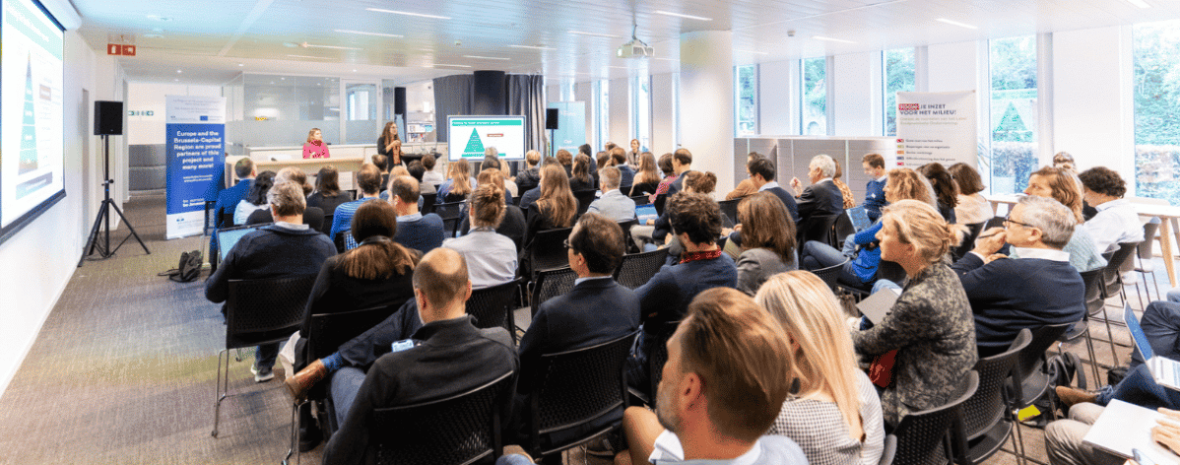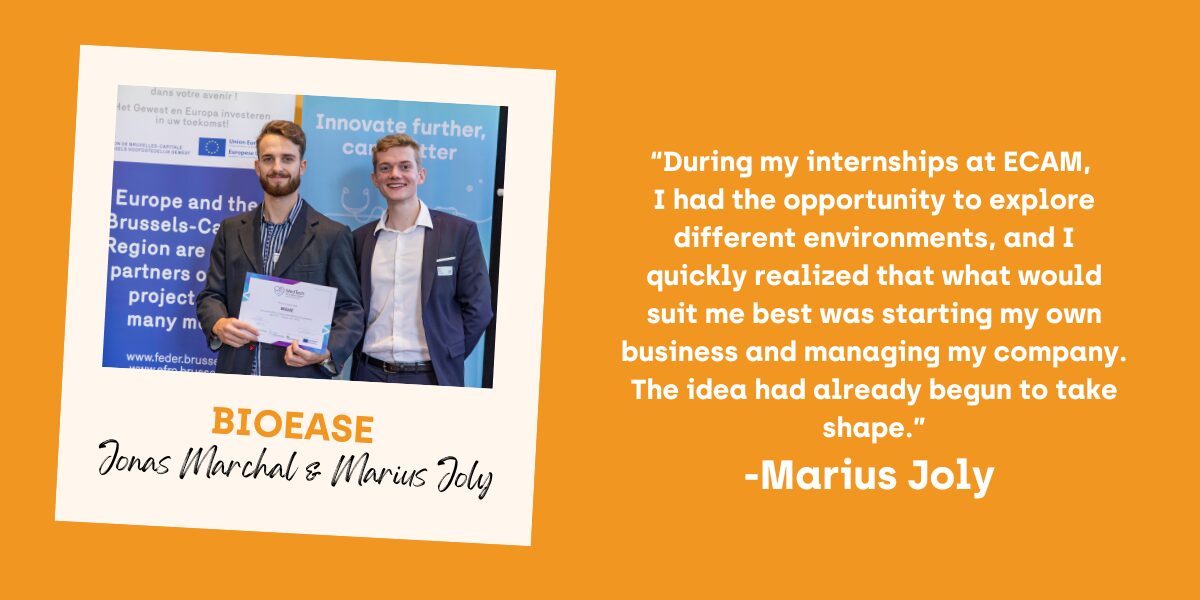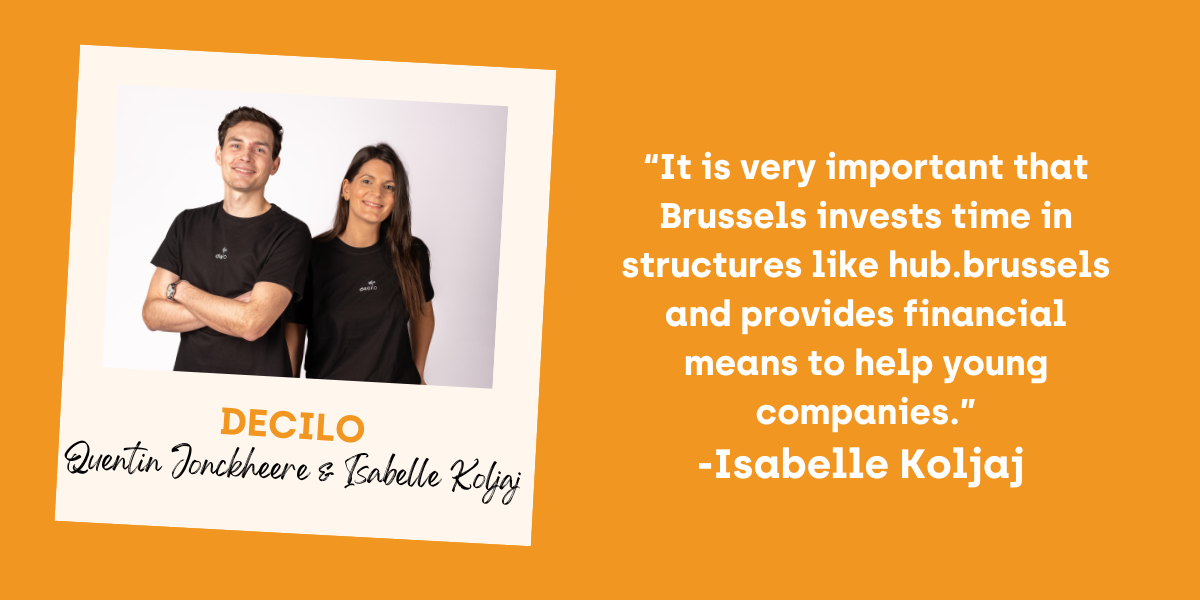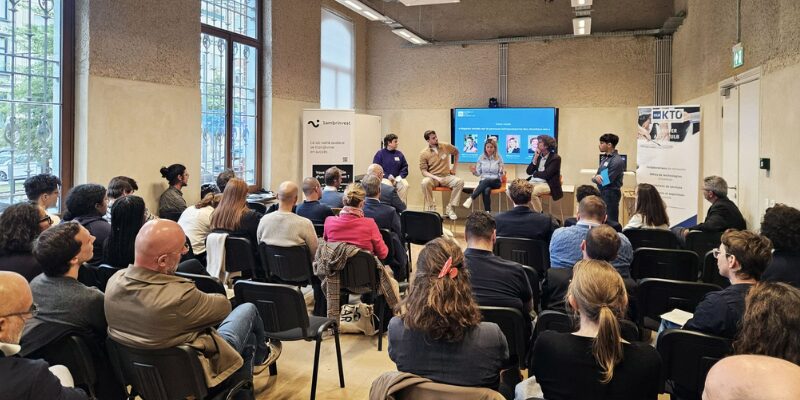Better safe than sorry… On 23 and 24 November, our lifetech cluster brought together key players in the healthtech ecosystem to encourage and facilitate the development of innovative projects in the field of preventive health. This was a first in Belgium and included all the ingredients required to make Brussels the European prevention hub in the health field.
Prevention refers to all interventions aimed at preventing the onset (primary prevention), spread and progression (secondary prevention) or worsening (tertiary prevention) of communicable or non-communicable diseases, health problems or disabilities.
Although it is essential – indeed, unavoidable – to strengthen the resilience of the healthcare system, the preventive health sector is still “underdeveloped, because it is very conservative,” as Pieter Sauwens of Deloitte explains. Deloitte has been commissioned by hub.brussels to carry out a study evaluating market opportunities and innovative business models in Belgium, Germany and Sweden for this specific sector.
An impact subtle to measure
The main challenge is that the benefits of prevention are more complex to prove and measure than in other sectors, which can discourage support. How, for example, can a significant correlation, with supporting figures, be established between a good diet and good physical health?
“Currently, health practitioners are paid to cure ailments, not prevent them. We need to find systemic common ground to promote and develop prevention solutions,” adds Sophie Liénart, Lifetech Advisor at hub.brussels.
As the OECD and the European Commission point out, “avoidable hospitalisations for chronic diseases (asthma, COPD, diabetes) could be reduced with care pathways that start with prevention. Similarly, cancer mortality can be further combated through prevention and screening.“
To date, however, “prevention can be compared to the banking system: fragmented and hermetic, with few bridges between each discipline” (Deloitte). In the age of digitalisation, the prevention sector urgently needs a platform for discussions and encounters, with free access to all existing solutions and data sharing, in Europe and beyond.
And that’s where our lifetech cluster comes in…
Making Brussels the new Prevention hub
Brussels is a particularly active region in terms of entrepreneurship and innovation, with 240 life sciences companies in 2019. The medical devices sector is the most represented and the digital health sector is the fastest growing. There are around thirty Brussels companies already working in prevention within the lifetech.brussels cluster alone.
Brussels’ main health and health innovation assets:
- presence of numerous high-level teaching and research structures, universities and colleges in the field of health
- medical care and research: high concentration of hospitals, including university hospitals (14 general hospitals, spread over 26 sites)
- leading Belgian region in number of hospital beds per 100,000 inhabitants (673.8).
- a very diverse population in terms of age and health: fertile ground for the development of a hub
- potential to become a technology hub and act as a laboratory for preventive HealthTech solutions
- digital ecosystem with great growth potential.
Our lifetech cluster aims to position Brussels as a pioneer in prevention innovation by contributing to the creation of an attractive ecosystem for entrepreneurs, industry, investors, healthcare personnel and frontline stakeholders in health and social care. This is to sustainably improve access to prevention and quality of life for the entire population of Brussels and beyond.
Some stakeholders, whose activity is entirely or partially related to health prevention, do not identify with the theme; lifetech therefore intends to raise awareness among these stakeholders by paying particular attention to them, especially in identifying and proposing content that is conducive to their development.
Brussels’ prevention seeds
Brussels is home to many leading start-ups in the field of health prevention. Their reputation has already spread far beyond our national borders. They include Kaspard, Innovation Sprint, Mintt, MoveUP, Neuroventis, Nutrinomics, Esperity, imagilys and Evoluno – as well as up-and-coming big shots such as Gratiago, whose team won the Jury Prize at the MedTech Accelerator 2022.
The Prevention Days: a success
With 160 participants, 38 speed meetings, 31 speakers and 2 keynote speakers, the first edition of “Prevention Days” was a success, thanks to the support of the ERDF.
This event fulfilled the twofold objective of supporting the visibility of innovative health prevention projects and bringing together various stakeholders from the Brussels healthtech and health prevention ecosystem: start-ups, public organisations, universities, mutual insurance companies, investors, health professionals, consultants and pharmaceutical companies were present during these two intense days of experience-sharing and informal discussions.
The speeches featured different types of stakeholders talking about their practical collaborations. For example, the startup Nutrinomics spoke alongside the Société Scientifique de Médecine Générale (SSMG) about a joint study, and the representative of the Patient Expert Center, who discussed their work with the startup Esperity and the Cliniques Universitaires Saint-Luc, which were also represented.
Health prevention: opportunities still under-funded
During the Prevention Days, several types of financial stakeholders came to demonstrate their practical and financial support for prevention start-ups.
- Finance&invest.brussels presented its portfolio of seven preventive health care start-ups and underlined the increasing development of solutions in this field.
- Mensura, the leading external Service for Prevention and Protection at Work in Belgium, invests and is seeking new partnerships with companies in the sector
- Carevolution, a joint initiative by Partenamut and Helan, is investing in innovative solutions and has outlined its financial collaboration with MoveUP. Its CEO recalled that the group can invest up to 2 million euros per company
- At the European level, the Horizon Europe programme includes three calls for projects aimed at preventive healthcare companies. The CEO of Innovation Sprint, a true nugget and member of the cluster, also spoke about the strengthened collaboration with lifetech in order to receive valuable European support.
A study disclosed in premiere
During this first event, the main conclusions of the innovative study conducted in collaboration with Deloitte were exclusively disseminated. The aim was to explore market opportunities and innovative business models in Belgium, Sweden and Germany for the preventive health sector.
Success stories from the three countries and their key success factors were also analysed to lead the way for other projects wanting to establish successful and sustainable business models over time.
Union makes prevention
In addition to the actions carried out internally, the Lifetech cluster has also joined several consortia of players and/or initiatives related to this theme in 2022. They include:
- Coalition Next Belgium, which has raised secondary/tertiary prevention challenges and seen a significant presence of hospital and pharmaceutical stakeholders.
- the E-Health Venture Launch Group, which primarily addresses primary prevention issues.
- the Hack Healthcare event, which puts forward topics related to the three types of prevention. The topics discussed were the focus of the hackhathon in June 2022, of which lifetech is a knowledge partner.
These various initiatives indicate that the subject is spreading beyond the lifetech cluster, and more widely at the national level. We need to encourage and further develop the adoption of these preventive health solutions in order to further improve the health of the Brussels population.



